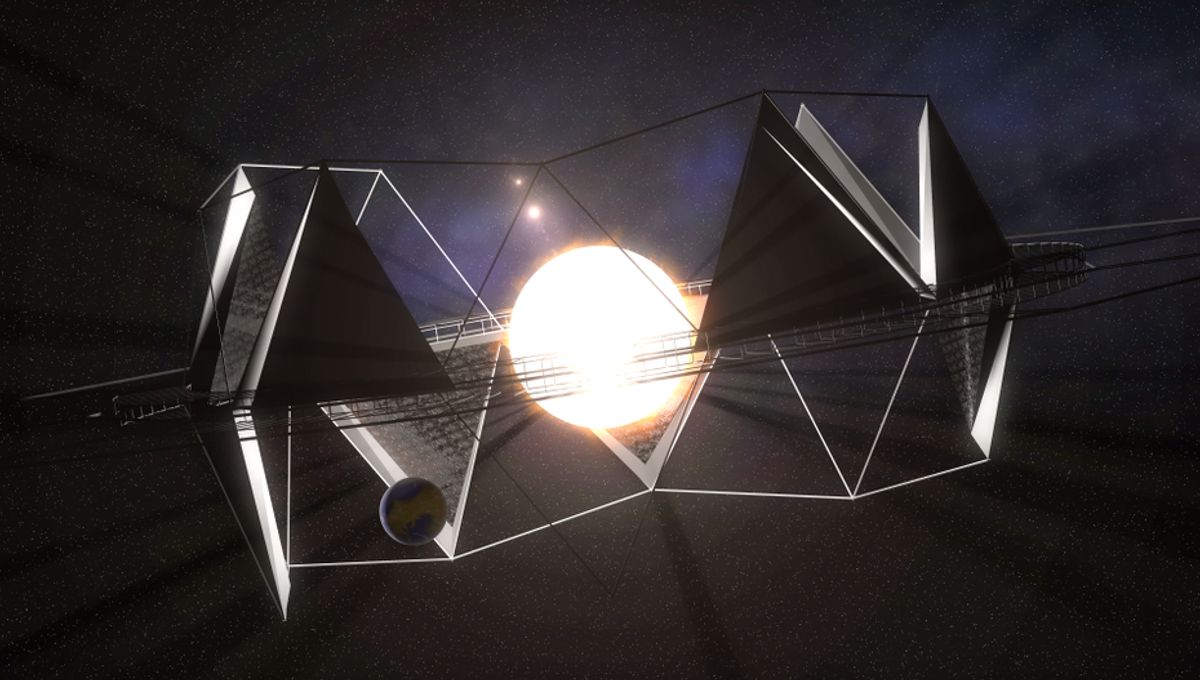
If Earth is so unremarkable in the grand scheme of things, where are all the aliens? A team of scientists from NASA’s Jet Propulsion Laboratory has tackled the question by looking at the Great Filter theory, humanity’s place in it, and our future as a species.
In the paper, they warn that the filter “has the potential to eradicate life as we know it, especially as our rate of progress correlates directly to the severity of our fall”, in what they call the “most unsettling solution to Fermi’s Paradox”.
You may have heard of the Fermi Paradox, but if you haven’t, here it is in a nutshell: Given the high probability that alien life exists out there in the universe because the Earth is not unique, why has nobody gotten in touch? If there are so many other civilizations out there, possibly at far more advanced stages than we are because of how long the universe has dragged on for (no offense universe, but get to the point), why are they not doing what we’re doing, sending out probes and desperately searching for other signs of life?
One possible solution is the Great Filter. The hypothesis goes that before alien civilizations can make it to the point where they are able to leave their star system and begin colonizing their galaxy or even the universe, something happens to prevent them from doing so, or we’d see evidence for this in our own Milky Way. Whether this is the step from multi-cell life to animals that can use tools, or from where we are now to exploring the galaxy, we just don’t know.
What makes this so interesting is we wouldn’t know if we are past the “great filter” or whether it’s going to happen in our future. Could it be that most don’t make it past single-cell life and we have already made it past this filter? Or at some point yet to come are we, like other alien civilizations out there, about to destroy ourselves before we are able to leave Earth, perhaps through war or using up our resources before we can escape?
Writing in their paper, the team suggests that successfully making it through this “great filter” to become an interstellar species relies on us taking time to realize where we are now, and the apocalyptic threats that face us, including large-scale nuclear warfare, naturally occurring and engineered pathogens, artificial intelligence (AI), asteroid impacts, and climate change. The paper identifies what levels of risk each currently poses, as well as what it would take to get through them in order to make it past the great filter (that is, assuming it is still ahead of us, and other alien species don’t get wiped out before they have reached this point).
The team is somewhat optimistic about nuclear threat, which they list as “perhaps the most obvious of Great Filters”, pointing at longer trends of a tendency against war (though they say we are still trapped in a “vicious circle”) and towards (albeit imperfect) democracy and peace. Asteroids too are seen as a filter we can overcome using technology, such as the recent DART mission that saw NASA redirect an asteroid by slamming an asteroid into it.
With regards to AI, the team says that steps must be taken now if we are to avoid this being our great filter, aka our demise. “Taking the guarded view, if and when AI does come to fruition it may well be too late to rely on empirical evidence gathered from its actual attitudes and behaviors towards the species which brought about its existence,” they write.
“Prudence then strongly suggests we perform sooner rather than later what modeling can be done, evaluate the necessarily preliminary conclusions drawn and proactively plan for a peaceful approach to the possibility of sharing the Earth with a new technological entity.”
Ultimately, the team believes that in order to overcome these sizeable obstacles to getting past whatever filters lie ahead of us, humanity must commit to more long-term thinking. Part of this would be committing to the goal of becoming a Type 1 civilization, which can harness all the energy available on our planet from our host star.
“Setting our sights on becoming a Kardashev Type I civilization, perhaps achievable in little more than the time taken to go from the first practical steam-driven engines to the present, would be a ‘giant leap for humankind’ in the right direction,” they conclude.
“Attainment of Type I status would all but assure any Great Filter has been successfully overcome, unfolding an all but unlimited future for humanity.”
Ending on a positive note, the team thinks that going beyond a Type 1 civilization is possible too.
“To prepare for our journey, we can likely count on the inner Solar System remaining habitable for another few billion years, until the Sun begins to expand towards red giant status,” they write. “Time enough for humanity to finally make other stars our home.”
The paper is uploaded to the ArXiv.
An earlier version of this article was published in November 2022.
Source Link: Scientists Outline The "Most Unsettling Solution" To The Fermi Paradox